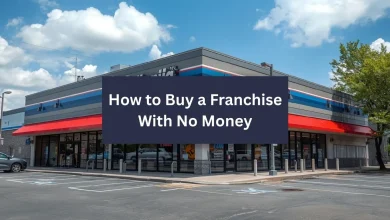How to Buy Foreclosed Homes with No Money: Investing in REO and Bank-Owned Properties

Buying foreclosed homes can be a golden opportunity for real estate investors—especially when you have little or no money to start with. With the right strategy, tools, and mindset, purchasing a bank-owned property or REO property (Real Estate Owned) without initial capital is not just a dream—it’s a viable reality. This comprehensive guide walks you through every step of buying foreclosed homes with no money, while integrating top industry insights, practical tools, and financing tricks to help you succeed.
Foreclosed Homes
What Are Foreclosed Homes?
Foreclosed homes are properties seized by a mortgage lender due to the homeowner’s inability to meet the terms of their mortgage contract. These homes are then sold through foreclosure auctions, public auctions, or become REO properties after failing to sell during an auction. Banks, government agencies like Fannie Mae, Freddie Mac, and the Department of Veterans Affairs, and even private lenders own such homes.
These homes span the spectrum—from single-family homes to multifamily properties, sometimes even large commercial lots, depending on the defaulted loan.
The Foreclosure Process Explained
Understanding the process is crucial before entering the foreclosure market:
- Notice of Default: Issued when a borrower defaults on a mortgage.
- Pre-Foreclosure Period: Time for the borrower to catch up or sell.
- Notice of Trustee’s Sale / Writ of Seizure and Sale: Sets the auction date.
- Public Auction / Sheriff’s Sale Auctions: Property is auctioned off.
- REO Property: If unsold, it reverts to the lender or becomes government-owned property.
You can track these stages via the county recorder’s office or public auction announcements.
Financing Strategies without Initial Cash
So, how do you actually buy a foreclosed home with no money down? Here are proven approaches:
Loan Assumptions
Some mortgage loans—especially FHA loans and VA loans—can be assumed by a buyer. If the loan terms are favorable (low interest rates, good amortization schedule), assuming the loan might allow you to bypass down payment requirements entirely. However, this typically requires a solid credit background and lender approval.
Hard Money Lenders
Hard money loans are short-term, asset-backed loans. These lenders care more about the property’s value than your credit score. They often fund up to 70% of the property’s ARV (After Repair Value), which is beneficial for 203(k) renovation loans or homeStyle renovation mortgages.
Gap Financing
This covers the gap between the hard money loan and the property’s purchase price or closing costs. Sources may include:
- Private investors
- Seller financing
- Partnering with other real estate investors
Using Credit Cards for Financing
Cautiously, credit cards can be used for repair bills, deposits, or even cashier’s checks needed during a foreclosure sale. Opt for cards with 0% APR introductory periods.
Navigating Auctions and “As-Is” Sales
Buying at an auction is a double-edged sword. Here’s how to navigate it:
Risks Involved in Auctioned Foreclosures
- You may not get a chance to conduct a home inspection
- Repair bills may be extensive
- You’ll likely need cashier’s checks or verified funds
- Possible existing tax lien foreclosure or zombie foreclosure issues
Understanding “As-Is” Sales
Many foreclosure sales happen as-is, meaning you inherit all physical and legal problems. Always conduct a property title search, verify tax status with the Internal Revenue Service, and ensure title insurance coverage is available.
Engaging Professional Assistance
Navigating foreclosures alone is risky. Professional support helps you avoid costly mistakes.
The Role of a Real Estate Agent
A knowledgeable real estate agent can:
- Guide you through real estate transactions
- Help locate off-market properties
- Submit competitive offers on bank-owned properties
Finding an Experienced Foreclosure Agent
Use platforms like Bank of America Foreclosures, Fannie Mae HomePath, or Freddie Mac HomeSteps to connect with certified agents. These agents understand down markets and can steer you away from risky mortgage banking offers.
Checkout: How to Start an Animal Rescue Nonprofit
Locating Foreclosed Properties
There are several ways to locate foreclosure properties available for sale:
Online Resources for Foreclosures
- Fannie Mae HomePath
- Freddie Mac HomeSteps
- HUD Homes by the Federal Housing Administration
- Auction sites like Auction.com, Hubzu, and Xome
Exploring Local Real Estate Listings
Check MLS databases for REO property listings or reach out to mortgage lenders directly to inquire about properties to sell from their portfolios.
Government and Bank Auctions
Government auctions from the US Army Corps of Engineers, Federal Deposit Insurance Corporation (FDIC), and Department of Agriculture Rural Development often list government-owned properties at lower prices.
Also Know: How Do Cemeteries Make Money?
Evaluating Pros and Cons
Advantages of Buying Foreclosed Homes
- Below-market home values
- Potential for 203(k) loans to fund repairs
- Opportunity for high returns after renovation
- Potential rent-ready multifamily properties
Potential Pitfalls to Consider
- Unexpected repair costs
- Legal encumbrances (e.g., unpaid property taxes, liens)
- Difficulty obtaining traditional financing
- Competitive public auction environments
More About: How Do Rappers Make Money?
Finalizing Your Purchase
Performing Due Diligence
Before finalizing the deal:
- Conduct a home inspection
- Order a property title search
- Verify past foreclosure rates in the neighborhood
- Review the Amortgage document and Trust Deed
Consider securing a Verified Approval or pre-approval letter from a credible lender like the Mortgage Research Center (NMLS ID registered).
Closing the Deal
Once financing is in place and inspections are done:
- Negotiate any final terms
- Pay closing costs and any applicable fees
- Transfer ownership with the help of a title company
For renovation-ready properties, explore FHA 203(k) loans or homeStyle renovation mortgage options to fund your upgrades.
Read More: 3D Printing for Small Business
Final Thoughts
Buying foreclosed homes with no money down is not only possible—it’s a powerful investment strategy when executed wisely. From leveraging hard money loans and loan assumptions, to navigating auctions and utilizing government agencies, there are countless routes into this often-overlooked side of the real estate market.
With due diligence, professional help, and the right financing strategy, you can successfully close on your first bank-owned property—even with zero cash upfront.
Frequently Ask Questions (FAQs)
Yes. The FHA 203(k) loan, backed by the Federal Housing Administration, is specifically designed for purchasing and renovating properties—including bank-owned properties and government-owned properties. This loan wraps both the purchase price and repair bills into one mortgage loan, making it ideal for distressed or Zombie Foreclosure homes needing serious rehab. You’ll need to meet credit and income requirements, and work with a HUD-approved lender.
Typically, yes. If you’re putting down less than 20% on a property—common when using no-money-down strategies—your lender will likely require private mortgage insurance (PMI). This protects the mortgage lender in case of default. PMI is often required for FHA loans, USDA Loans, and even some Freddie Mac HomeSteps or Fannie Mae HomePath programs, depending on your credit profile.
Absolutely. The USDA Loan, offered through the Department of Agriculture Rural Development, allows qualified buyers to purchase homes in designated rural zones with no down payment. This can include foreclosed homes if they meet condition standards or can be made livable using renovation loans. The USDA also provides competitive interest rates, making it a top option for buying off-market properties or homes listed through federal agencies.
To succeed at a foreclosure auction or sheriff’s sale auction, you need to be prepared:
– Arrive early with cashier’s checks
– Research liens and title issues through the county recorder’s office
– Check public auction announcements for up-to-date listings
– Obtain a Verified Approval or pre-approval letter from a credible source like the Mortgage Research Center (founded by Steven Glick, NMLS ID 1907) to strengthen your negotiation position
Understanding auction rules and knowing the real estate market conditions is critical when dealing with Trust Deed or Notice of Trustee’s Sale properties.
Zombie Foreclosures—homes vacated by owners before the foreclosure process is complete—come with several risks:
– Unknown repair bills
– Potential vandalism or code violations
– Disputed ownership or title issues
– Accrued property taxes
Even if a home becomes an REO property, you may inherit problems unless a thorough home inspection and property title search are performed. Always ensure title insurance is part of your real estate transaction to protect your investment.



